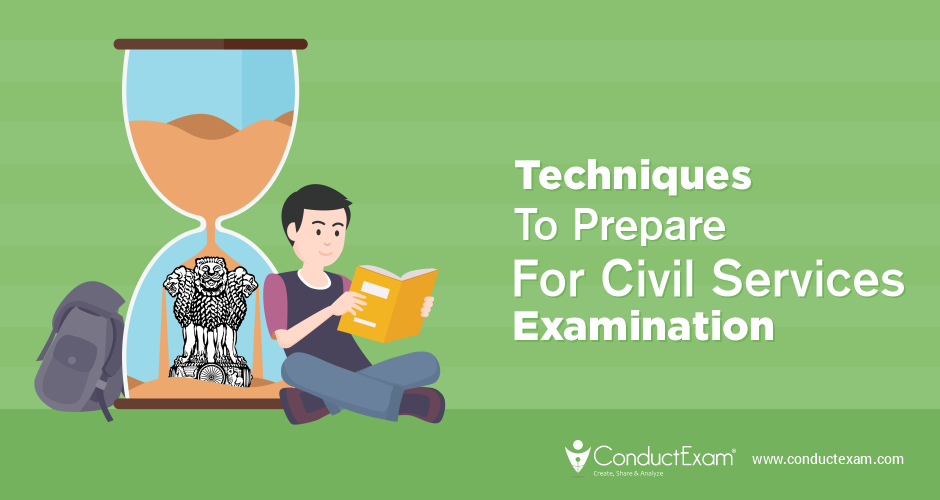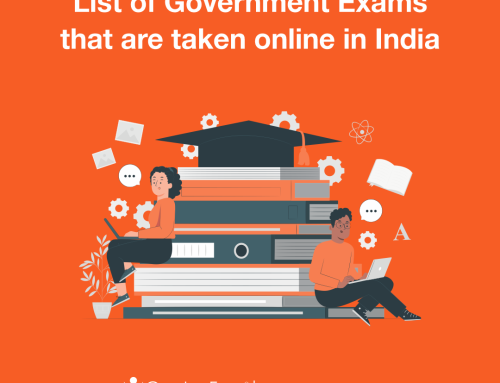Introduction
One of the most frequently asked questions by government job aspirants is “What is the UPSC exam?” Well, the UPSC exam or commonly called the IAS exam is UPSC civil service examination. The UPSC Civil Service Examination (CSE) is one of the exams conducted by the Union Civil Service Commission to recruit candidates for Indian civil service including IAS, IPS, IFS, and other related services. The exam is conducted in three stages namely UPSC Prelims, UPSC Main, and Personality Test or UPSC Interview.
The first part of the IAS exam is the first part of the UPSC exam which is an examination exam and therefore qualified in nature. The marks obtained in the UPSC Prelims exam are not considered in the final merit. However, marks in GS Paper-I are important in determining the threshold for UPSC preliminary examination. The IAS Prelims exam paper consists of two paper-based objective MCQs as opposed to the UPSC Civil Services Sector exam. The UPSC Mains exam is a descriptive exam consisting of nine papers.
UPSC civil service exam is one of the most popular exams in India. Thousands of people try it across the country every year. However, only a fraction of them can achieve their IAS goals. The IAS exam is not only tough in terms of the length of its syllabus, but it is also awesome because of its unpredictable nature. In this article, you can get all the information you need to prepare for the UPSC exam and change your future.
UPSC exam cannot be cracked by just paper. The last step in the UPSC examination process is the person’s screening process when the UPSC officials interview the person to determine their personality and eligibility for the job. It requires the full development of the person outside of academic knowledge. And, even at university, the focus should not be only on completing the program, but on getting information and understanding constantly the latest events/news in the country and others.
How to prepare for the IAS exam?
This section lists important UPSC tips for beginners. These tips are meant to help the aspirants to devise a proper preparation plan for the upcoming UPSC 2023 exam.
Step 1: Prepare yourself
Before trying to figure out how to start preparing for UPSC at home, you need to prepare for the journey. Before you start your preparation, prepare mentally and physically for the exam. Set goals and use your time effectively. Understand the UPSC exam pattern and make your IAS preparation like this. The UPSC exam consists of three phases – preliminary, mains, and interview.
If you are working and decide not to quit your job, evaluate how you will spend your time studying and come up with a plan. Today, with technology like the Internet, it is possible to organize the preparation and work quickly.
Step 2: Go through the whole syllabus
Coursework is the soul of any exam. Knowing the program is the first thing you should do before browsing the books. UPSC has given the syllabus of civil services preliminary and main examination comprehensively. Candidates must understand and follow the UPSC civil service examination process. Knowing the curriculum will help you choose the right courses, prioritize topics, and more.
Step 3: Reading Newspapers/Reports for IAS
News Paper is the most important part of the IAS exam. If you don’t read the daily newspaper or follow the daily news for the IAS exam, you can’t expect to clear this exam. The questions asked in the government service exam are directly or indirectly related to current affairs. That is why it is very important to follow important news in your daily life.
Step 4: Select Options
Optional subjects count for 500 marks in the final marks of UPSC.
Therefore, you should choose the subject you want to choose wisely and carefully consider the pros and cons of the subjects you have in mind. Some things to keep in mind before choosing an option are:
- Interest in topics
- Basic computer knowledge / academic training
- Close to GS book
- Get care
- Learning outcomes
Step 5: NCERT
NCERT books for classes 6 to 12 play a very important role in preparing for the IAS exam. Aspirants can get basic concepts and concepts from NCERT textbooks. These books provide the information in a consistent manner. Also, they have credibility because the source is the government itself. In previous years, UPSC asked questions directly from the NCERT manual.
So, NCERT is the best book to start your preparation for IAS.
Step 6: Develop a habit to make notes
It helps to make short notes while preparing for UPSC. Since the UPSC syllabus is extensive, it helps to keep track of the parts covered and also serves as an exam-ready calculator. You may have different files or notebooks for different topics. Many people prefer files because they make it easy to add notes and topics. This is especially useful when it comes to adding news related to current events on a topic.
Step 7: Learn to write answers
The main IAS examination paper is descriptive. It is about testing your analytical, technical, and communication skills. It forces you to think with a clear mind and organize your thoughts, understanding, and ideas flawlessly. Another thing to keep in mind is the time and space in the answer booklet. Therefore, the candidates should answer the questions quickly and clearly and in a few words. This is not possible without proper feedback writing practice.
Step 8: Solve UPSC questions from previous years
Previous questions are the reliable source for UPSC pattern, difficulty level, and question type.You can easily decide the pattern in the UPSC exam paper. It will also help you understand the most important parts of a topic. Finally, it is a good source of self-assessment and preparation for IAS.
Step 9: Mock Model Techniques
Self-assessment is an important part of UPSC preparation.
This can help aspirants understand and learn from their mistakes, outline the steps they should follow to prepare, and identify strengths and weaknesses. It is recommended that you join the mock test system, especially if you are preparing at home. This will help you to analyze yourself and help you more.
Step 10: Important government resources
Your main aim while appearing for the IAS exam is to work for the Indian government.
Naturally, there are many official sources you can rely on when preparing. Government websites like GDP, PRS, and TV programs of these countries show that Rajya Sabha TV is very helpful. We cover important GDP topics every day.
Step 11: Reformation
Revision is very important when you are facing a tough exam like the UPSC exam.
Since the UPSC syllabus is vast and varied, covering many subjects, it is good to forget what you have studied before. To avoid this, timely adjustment is necessary.
Step 12: UPSC Interview
As mentioned earlier, the last step in the UPSC exam process is the UPSC interview or the aptitude test.
This is an important step in the process and this is where more than just education helps you. You will be assessed on qualities such as diplomatic skills, communication skills, presence of mind, reaction to pressure, etc.
You will also be asked about your interests, hobbies, education, and work experience, if applicable. So it is important to update these parts.
Conclusion
The IAS exam is one of the toughest exams in India because of the huge syllabus of UPSC and the tough competition. However, with systematic preparation and proper guidance, you can crack the UPSC exam on the first attempt. We have provided a step-by-step preparation guide on how to prepare for the UPSC exam. This will also give answers on how to crack the UPSC exam on the first attempt. Let’s take a look at the step-by-step preparation plan for the UPSC exam.




Leave A Comment